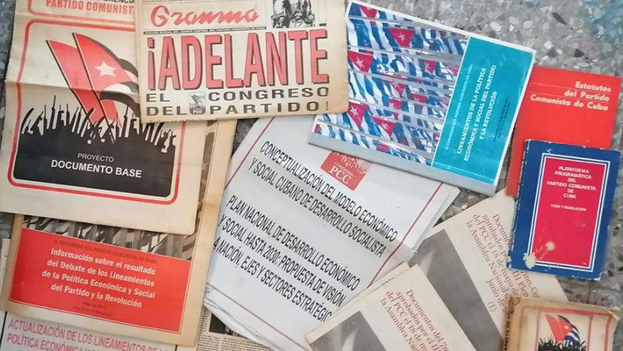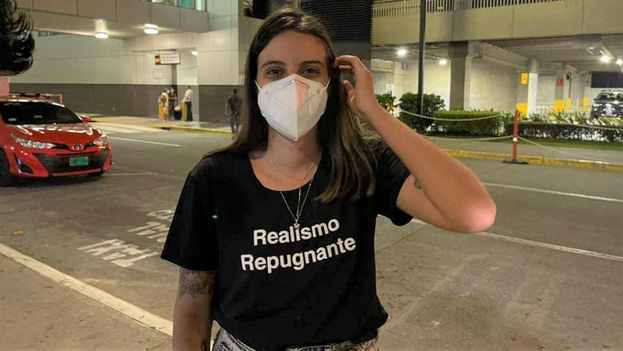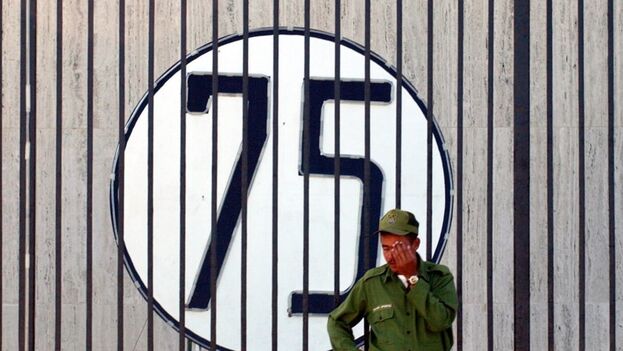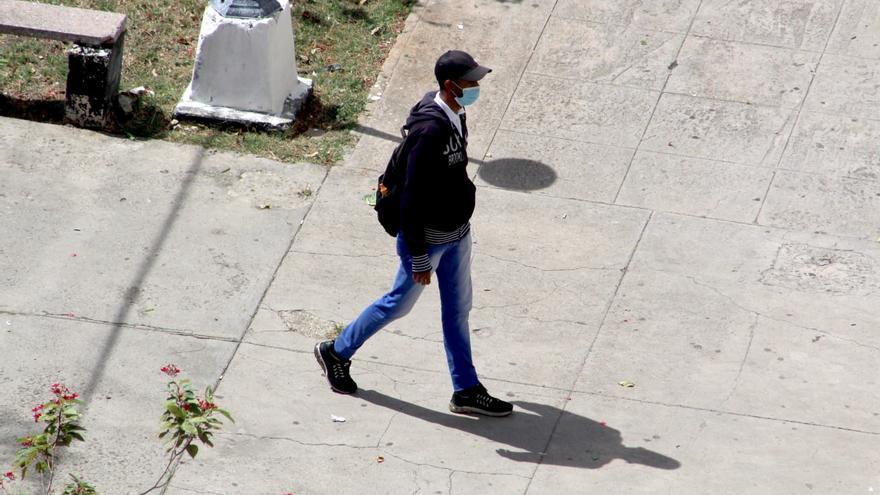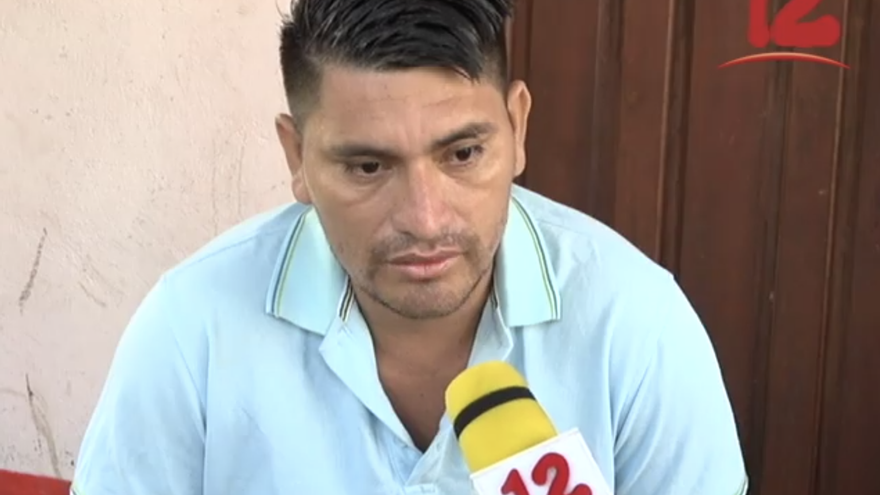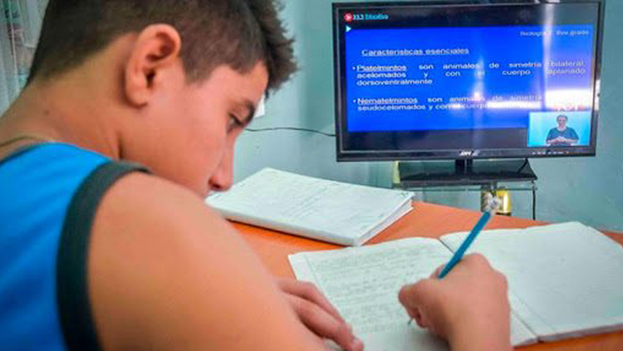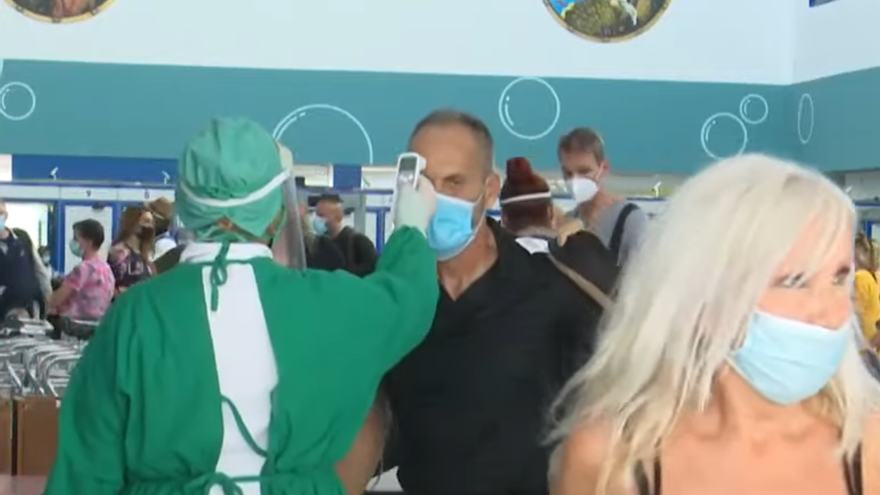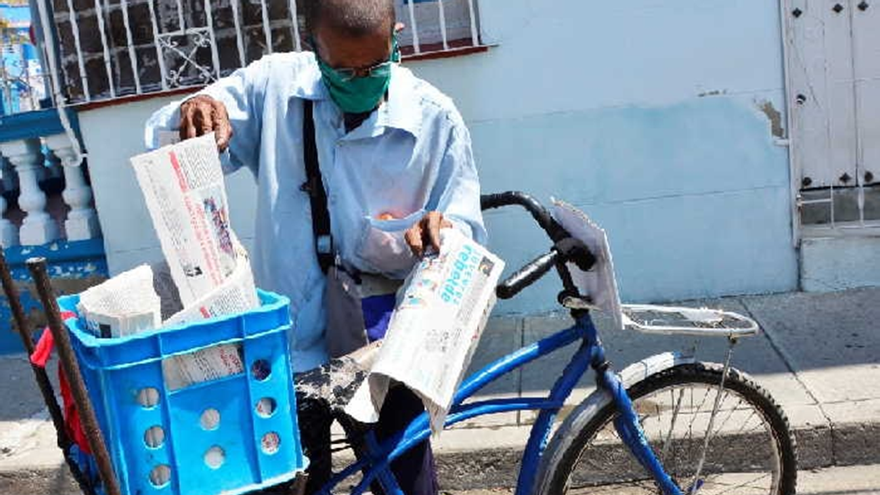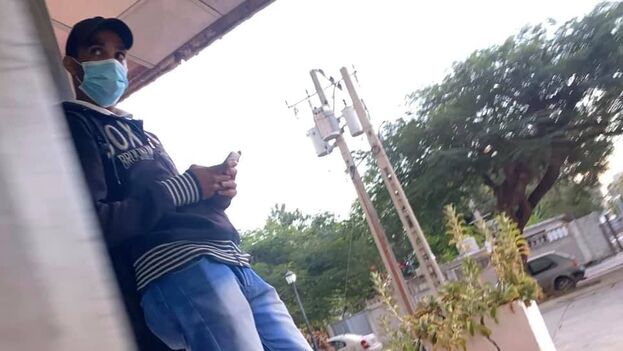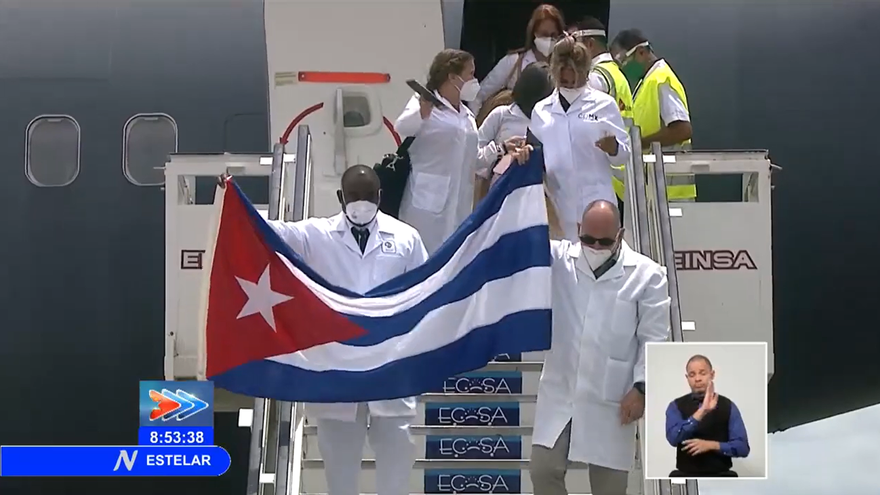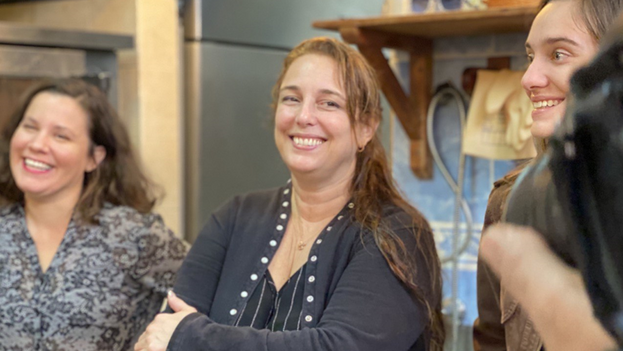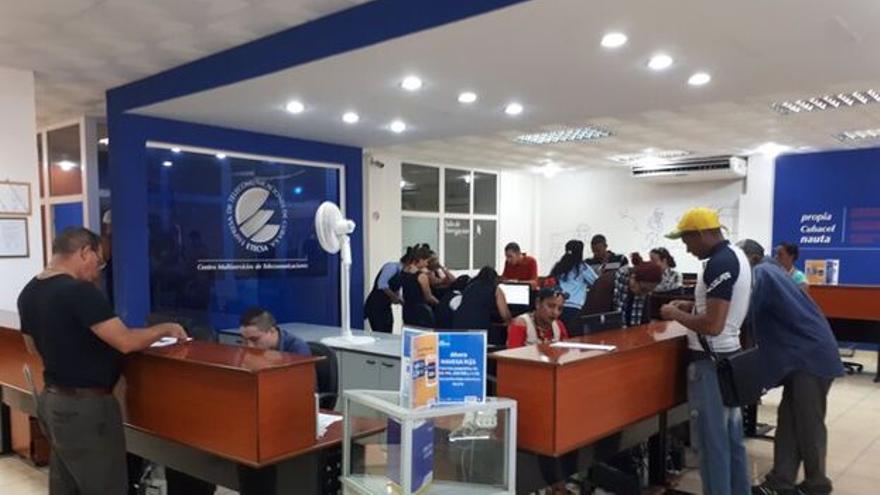
![]() 14ymedio, Havana, 19 March 2021 — “Two recharges with bonus in a single month, they must be very hard up for money,” thinks Lázaro Miguel, a 27-year-old young man who makes a living in Havana updating mobile operating systems and selling vouchers for cell phones. So far this year, his work has multiplied because the state telecommunications monopoly Etecsa has launched two recharge offers every month from abroad with an additional bonus.
14ymedio, Havana, 19 March 2021 — “Two recharges with bonus in a single month, they must be very hard up for money,” thinks Lázaro Miguel, a 27-year-old young man who makes a living in Havana updating mobile operating systems and selling vouchers for cell phones. So far this year, his work has multiplied because the state telecommunications monopoly Etecsa has launched two recharge offers every month from abroad with an additional bonus.
“Normally a monthly offer was made on significant days or holidays, but now in less than 30 days two have been launched and that is because they are desperate to get fresh money,” says the young entrepreneur who shares a small table at the foot of a staircase with another self-employed person also dedicated to mobile phone service in Centro Habana, a few steps from Plaza de Carlos III.
“When there is a recharge with money from abroad we make good money but now with the monetary unification it is difficult to calculate how much we are really going to have for ourselves,” he warns. To buy these offers, you need an international card, Visa, MasterCard or another card, which allows you to make purchases on internet payment gateways. continue reading
Lázaro Miguel has a brother in Madrid and, together with a friend, they have devised a simple service. “They offer to deliver remittances in pesos at the door of clients’ homes in Cuba.” In Spain they collect these remittances in euros and use the money to buy telephone recharges, which Lázaro Miguel resells in pesos on the island. Those pesos, less the commission charged by the two brothers and the friend, will be delivered to relatives in Cuba.
The triangulation of remittance-recharge-remittance money is a common business that has gained strength on the island after the withdrawal of Western Union, the main financial company in charge of channeling the money sent by emigrants to their families on the island. With the closure of that company, popular creativity has appealed to cryptocurrencies, bank transfers and the use of telephone recharges as a way to get cash.
According to calculations made by an expert who participated in negotiations with Etecsa, this company obtained gross total revenues of about 260 million dollars in 2015. After deducting expenses (40 million), the monopoly was left with a net profit of 220 million. This was five years ago and, according to the same source, the profitability of the state monopoly, which keeps its income secret, has grown substantially since then.
The company seems to have discovered a new vein with the management of emigrants’ remittances. On March 10, Resolution 116/2021 of the Central Bank of Cuba (BCC) was published in the Official Gazette of the Republic , which paves the way to turn the communications monopoly into a new way to send remittances to the Island.
In the text of the new legislation it is clear that Etecsa asked the BCC for a “modification of the license granted” previously for its payment management and in this way to “include among the activities authorized to develop, the enabling of a mobile wallet as part of the operation of the Transfermóvil platform.” With the new resolution, natural and legal persons will be able to manage with their bank accounts from their cell phones and make payments on national electronic commerce platforms.
Although Etecsa has not provided many details about its new service and the legal document does not clarify all the gaps about the announcement, apparently, the money that is recharged as a balance from abroad, is reflected in pesos on the mobile line, can be used to pay for basic services and purchase combos on digital platforms.
It is specified that the income in the mobile wallet will have as a source “the magnetic cards associated with the bank accounts” on the Island and “the balance they have associated with their mobile phone service.” The resolution also makes it clear that the use of the money will be solely electronic.
Around March 8, Women’s Day, the state monopoly launched one of its well-known top-up offers with bonuses included. Every month, Etecsa promotes for several days the possibility of buying from abroad credits for mobile phone customers on the Island, but these options are not available to residents within the Island, although there is no shortage of tricks to access them as well.
“You pay me in Cuban pesos and I’ll top-up in dollars,” offers a witty informal merchant in various ads on classified sites. “For 800 CUP I give you a 500 balance + 1 GB bonus + 50 minutes + 50 SMS”, he explains in the text that sends potential customers to a WhatsApp account “for more details.”
“Not all dollars are the same, some dollars are more than others,” warns Fonseca, a telecommunications agent who provides his services on one of the busiest avenues in Centro Habana, Calle Reina. “People come with their card in MLC (freely convertible currency) to see if they can recharge with a bonus, but those fulas [dollars] don’t work, they have to be the outsiders, the fresh ones.”
With the magnetic cards of Cuban banks, all state-owned, you cannot buy the recharges with vouchers that are sold through digital portals. These offers are not even marketed in the Etecsa offices for clients of national bank accounts in foreign currency. “You have to buy them with Visa, Mastercard or other foreign cards,” reiterates an employee of the monopoly’s office in the town of Guanabo, east of Havana.
The new electronic wallet service may not solve this difficulty because it will only initially allow payments in Cuban pesos within the country, but it is a hope for those who seek to promote the mobility of virtual money without going through long lines at banks or ATMs.
____________
COLLABORATE WITH OUR WORK: The 14ymedio team is committed to practicing serious journalism that reflects Cuba’s reality in all its depth. Thank you for joining us on this long journey. We invite you to continue supporting us by becoming a member of 14ymedio now. Together we can continue transforming journalism in Cuba.

